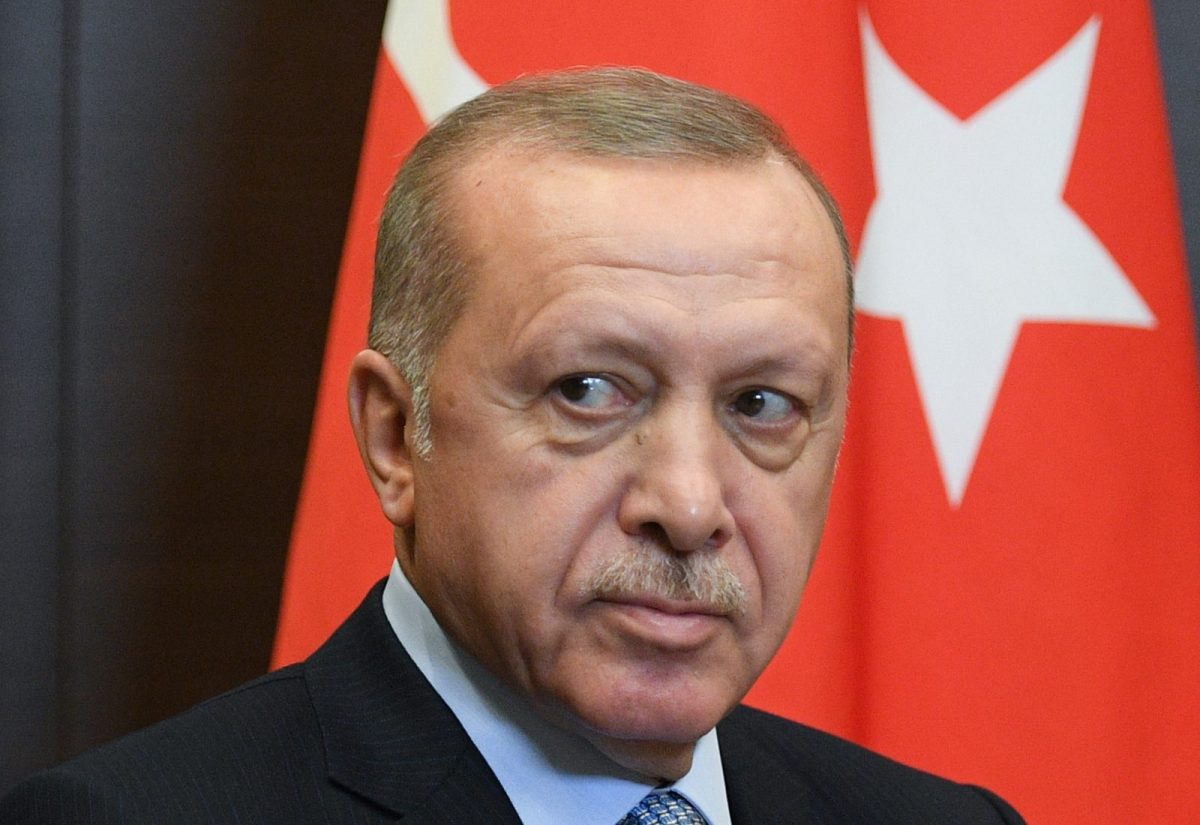Listing has adversely impacted Turkey’s global credibility and is the result of Erdoğan’s attempts to punch above his weight.
The global money laundering watchdog Financial Action Task Force (FATF) had placed Turkey last week in its “grey list” for non adherence to United Nations sanction regime, money laundering and abuse of terror financing. Ankara had reacted strongly, calling it unfair. The grey listing is not just a blow to Ankara, but also to its closest ally Pakistan which is developing a strategic relationship with Turkey under its president Recep Tayyip Erdogan. The Sunday Guardian talked to experts to trace why Turkey has been placed in the infamous “grey list” of the FATF, and whether it has anything to do with Ankara’s aggressive posturing and its leader’s dream to become the “new Ottoman emperor” of the Muslim world and how will it impact India as Turkey has been a bitter critic of India’s stand on the Kashmir issue and is a close ally of New Delhi bete noire Pakistan.
Ajit Kumar Jha, Founding Editor of Doha-based Qatar Tribune and an Oxford University trained Middle East expert, said: “Ostensibly, Turkey has been put in the FATF grey list on allegations of non adherence to United Nations sanction regime, money laundering, abuse of terror financing and other serious charges. Turkey, under Erdogan grappling with the Syrian crisis, has always attempted to ‘punch above its weight’, a form of neo-Ottomanism. Erdogan has used political Sunni Islam to challenge the dominant powers of the Middle East: Saudi Arabia-UAE alliance, on the one hand, Israel on the other hand and the Iran-Qatar LNG gas lobby. Despite being a NATO member, Turkey has alienated the USA, France and other European powers, lies isolated, without many friends, punched back for attempting to punch above its weight.”
It had been also said that by criticizing India, Turkey had created problems for itself as New Delhi is a major power in international politics. Jha added, “Moreover, Turkey despite being a NATO member, misused its emerging power economics heft and today faces a precarious economy, a major currency crisis with the plunging of the Lira, economic overheating and flight of foreign investors. Turkey now being in the infamous FATF grey list and thus losing its global credibility surely enhances India’s position since Ankara is a close ally of Islamabad, a trenchant critic of India’s position on Kashmir and a major funder of Sunni Islamist fringe terror outfits. Furthermore, with the revival of the Indian economy, India’s economic heft as a major emerging economy, a prominent member of G-20 dislodges Turkey’s previous position of emerging power economic eminence and plunges Ankara into a serious financial and economic crisis.”
While addressing the media Financial Action Task Force (FATF) President Marcus Pleyer said that Turkey needs to address “serious issues of supervision” in its banking and real estate sectors, and with gold and precious stones dealers and needs to show it is effectively tackling complex money laundering cases and show it is pursuing terrorist financing prosecutions and prioritising cases of UN- designated terrorist organisations such as ISIL and al Qaeda”.
Rakesh Kumar, a senior professor of Political Science and International Relations under University of Delhi, said: “Financial Action Task Force (FATF) had indicated to Ankara in 2019 itself about its shortcomings which included the need to improve measures to freeze assets linked to terror groups. But Turkey didn’t act. You have seen in recent times how Recep Tayyip Erdoğan tried to aggressively act on multiple occasions and in that he had alienated the big powers. Moreover, now Turkey is with few friends and numerous adversaries. Hence, the FATF actions will harm it big time. If you look at the task given to Turkey by the FATF which includes dedicating more resources to the supervision of AML/CFT compliance by high-risk sectors and increasing on-site inspections; applying “dissuasive sanctions” for breaches of AML/CFT, including unregistered money transfers; enhancing use of financial intelligence to support money laundering investigations; undertaking more complex money laundering investigations and prosecutions; fixing responsibilities and measurable performance objectives for anti-terror finance authorities and few others, means that the road for the country will be tough even in the next meeting and it will be difficult to get out of the infamous FATF list.”

